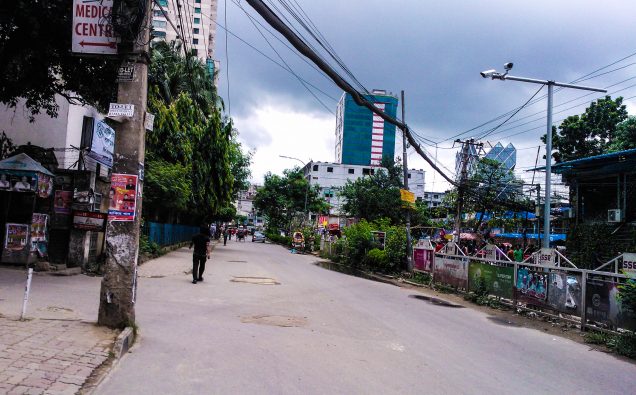
The brutal killing of more than 20 hostages in Dhaka during an 11-hour siege of a posh restaurant has amplified challenges Bangladesh faces from domestic and international militancy that has rocked several countries.
Dhaka’s terror troubles have been fomenting overtime but they saw a sudden surge with the killing of secular bloggers, frequent kidnappings and murders of foreigners and religious figures like a Buddhist nun, and Hindu priest.
But the latest deadly siege in the capital has raised a string of questions about the motive and affiliation of militants operating in the country, and exposed Bangladesh’s lack of preparedness to deal with terrorists.
There are no definitive answers to these questions, as there are many pieces of the Bangladesh terror puzzle – partly due to absence of publicly shared information about militant groups’ activities in the South Asian country and partly due to failures and fast-ebbing credibility of Prime Minister Hasina Wajid’s authoritarian rule.
ISIS, which is having a hard time against the US-led coalition with space shrinking for its operations in Iraq and Syria, immediately claimed responsibility for the carnage in Dhaka. In desperation, especially after losses in Fallujah, the ISIS has ratcheted up a combination of guerrilla warfare as in Baghdad on Sunday and coordinated attacks as in suicide bombings on Istanbul’s Ataturk airport earlier this week.
While, it has long been known that the ISIS has drawn militants from around the world, there has been no confirmation yet of direct ISIS involvement in the Dhaka bloodshed.
On Sunday, the Hasina Wazid government denied the attackers had any links with the ISIS terror group. Home Minister Asaduzzaman Khan declared that the Dhaka restaurant assailants belonged to Jumatul Mujahedeen Bangladesh or JPM, a homegrown militant group, which has been operating in the country since late 1990s but has spread its tentacles in the last few years.
According to Bangladeshi Home Minister, cited in a VOA report, the terrorists who inflicted death and destruction on the restaurant were well-educated and came from wealthy families. Dhaka Police has also confirmed that all attackers were Bangladeshis.
The international media, quoting witnesses, have also reported that while perpetrating their heinous crime, terrorists said they were targeting those hostages who were not Muslims, and could not recite the Holy Qur’an. The 20 deaths including nine Italians, seven Japanese, three Bangladeshis, one Indian and a U.S. citizen appear to confirm the eye-witnesses’ account.
While nothing can be ruled out at this early stage of the probe into the hostage killing, one thing is clear that Dhaka is woefully unprepared to grapple with the terror challenge. The dismal state of affairs stems from a spate of factors.
Since her 2014 victory in opposition-boycotted election, Hasina Wazid has increasingly turned autocratic in her governance. She has routinely rounded up thousands of political opponents in the name of counterterror campaigns, executed opponents in what is seen internationally as judicial murders, and in the process deeply divided the impoverished nation.
As a consequence, Bangladesh seems incapable of forming a united political front against both militant mindset and terror, homegrown or international. The government created more problems for itself by resorting to hanging some political figures of the 1971 independence war era. Those politicians, mostly belonging to the Jamaat-i-Islami, were sentenced by specially appointed tribunals after flawed trials. The United Nations and some human rights organizations denounced the convictions handed down those tribunals.
The law enforcement and security forces do not have the capacity, equipment or training required to fight off the terror challenges as reflected by Friday’s hostage killings. All this has happened during years when Bangladesh was beginning to shows signs of economic progress.
As seen elsewhere in the world, particularly in the Middle Eastern hot spots of Syria, Iraq and Libya, the kind of national discord, political acrimony, divisiveness, corruption and economic injustice that Bangladesh has mired itself in, provides a perfect climate for militants to operate and expand their activities.
How Bangladesh responds to the challenge will depend largely on Dhaka’s willingness and ability to take along the nation – something that would require transparency and political vision that puts national cohesion above self-interest. Another key would be for Dhaka to improve its coordination with regional countries and the United States with a mission to boost its capacity to fight terror, and bring economic hope to its youth.











